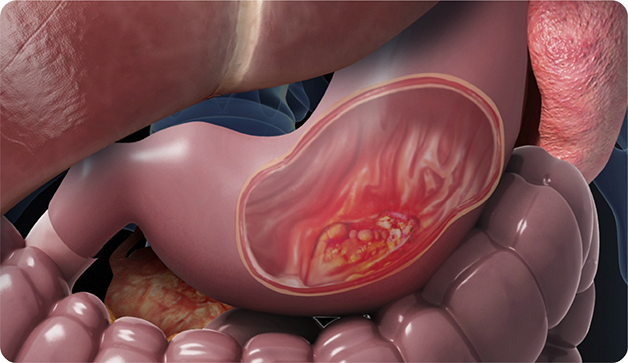Stomach Cancer
Stomach cancer or gastric cancer occurs due to abnormal cell growth in the inner lining of the stomach. This is the most common cancer throughout the world caused by Helicobacter pylori infection and excessive smoking.


Types of Stomach Cancer
Based on its origin, stomach cancer is of the following types.
- Adenocarcinoma: This is the most common type of stomach cancer which starts in the inner lining of the stomach
- Gastrointestinal Stromal Tumors: This rare type starts in the interstitial cells of the stomach.
- Neuroendocrine Tumors: This slow-growing cancer starts in the neuroendocrine cells.
- Lymphoma: This type starts from the lymphatic system and travels to the stomach.






